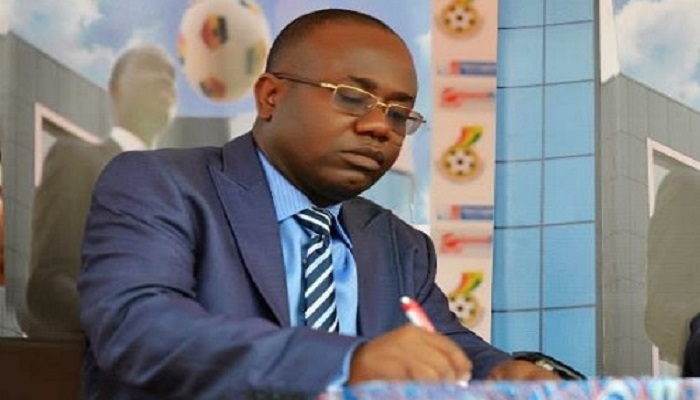Highlights:
- The Accra High Court has discharged former GFA President Kwesi Nyantakyi after a five-year legal battle due to the prosecution’s failure to present any witnesses.
- The Court of Appeal’s January 2025 ruling influenced the case by emphasizing fair trial timelines and requiring Anas Aremeyaw Anas to testify without his signature mask.
- The ruling raises concerns about the effectiveness of investigative journalism in securing legal convictions and its broader impact on accountability in Ghanaian football.
A Surprising Court Decision
After five years of legal wrangling, the Accra High Court has officially discharged former Ghana Football Association (GFA) President Kwesi Nyantakyi and his co-accused.
The ruling, delivered by Her Ladyship Justice Marie-Louise Simmonds, marks the end of one of Ghana’s most high-profile legal battles.
At the heart of the decision was the prosecution’s failure to present any witness testimony, leading the court to conclude that there was no case to answer.
A Case Without Evidence
The prosecution initially proposed five witnesses, yet not a single one took the stand. In a dramatic twist, the final potential witness insisted on testifying while wearing a mask, a request that ultimately complicated proceedings further.
This absence of testimony left the court with no substantial evidence, making it impossible to justify continuing the case.
The Role of the Court of Appeal’s Ruling
A major turning point in the case came in January 2025 when the Court of Appeal ruled in favor of ensuring a fair trial within a reasonable timeframe.
This ruling played a critical role in the High Court’s decision. Additionally, the Court of Appeal had ruled that investigative journalist Anas Aremeyaw Anas must testify without his signature mask—a decision that was intended to streamline the trial but instead contributed to its unraveling.
The Legacy of the Number 12 Exposé
The Number 12 exposé, released in 2018 by Anas and his investigative team, sent shockwaves through Ghanaian football. The documentary alleged widespread corruption in the GFA, ultimately leading to Nyantakyi’s resignation and subsequent bans from football activities.
While the exposé reshaped the public perception of football governance, the failure to secure a conviction in court has raised significant questions about the effectiveness of high-profile investigations in delivering legal justice.
Implications for Ghana Football and Investigative Journalism
Nyantakyi’s discharge is not just a legal milestone—it’s a moment of reckoning for both Ghanaian football governance and investigative journalism.
The ruling highlights the difficulties in translating journalistic revelations into courtroom convictions, especially when evidence is deemed insufficient.
Moving forward, this case may spark discussions on refining investigative methods, strengthening legal frameworks, and ensuring due process in corruption-related trials.
For Ghana’s football administration, the verdict could serve as a wake-up call. The spotlight is now on the Ghana Football Association to implement genuine reforms that prevent future corruption scandals.
Looking Ahead
As Ghanaian football looks to the future, the key question remains: will this ruling inspire deeper reforms, or will it be remembered as a cautionary tale about the limits of legal action in tackling corruption?
Stakeholders across sports, journalism, and law will be watching closely to see what happens next.
Should investigative journalism have more legal backing to ensure accountability?
Share your views in the comments below!
You May Also Like
☑ President Mahama Bans First-Class Travel for Officials
☑ Ghana-China Bilateral Trade Hits $11.84 Billion in 2024
☑ Ghana: Africa's second safest Country surpassing Canada and Greece
☑ Why Lawmakers Break the Law—But Face No Consequences?

